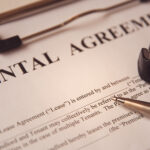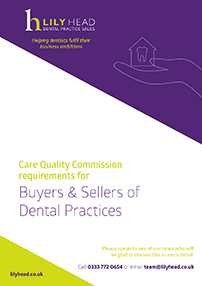Whilst many people are working from home now. It is unlikely that dental care will ever be a fit for home working. Therefore every dental practice owner will continue to need specialist premises to operate from. So, when considering the sale or purchase of a dental practice remember that ‘Property Matters’.
When it comes to time to sell your dental practice. The new owner(s) will generally expect you to include the property so they can carry on providing clinical services.
Buyers and their lenders will want to be able to take over your premises without financial penalty. So they can carry on treating your patients in the premises they are used to attending.
As importantly, or maybe more importantly the banks are also keen to get into all the detail around the premises. The banks want to be sure the person they are lending their money to has suitable premises to carry out their business activity. They will also want to satisfy themselves the borrower is not going to become liable for unexpected costs around the property which may impact their ability to repay the loan.
When the premises are well maintained your broker will be able to maintain the value of your goodwill. Selling premises which require more than routine maintenance simply presents an opportunity for interested parties to try and renegotiate on the price to mitigate the financial risk of poorly maintained properties.
Many property leases are full repairing and renewing lease (FRI). FRI leases tend to be in standalone buildings where there are no shared facilities. A lease granted on an FRI basis means that all repairing and insuring obligations are imposed on the tenant. This relieves the landlord from all liability for the cost of insurance and repairs. In other words, the tenant must keep the property in repair, pay for those repairs, keep the property insured and pay for that insurance. As the leaseholder of an FRI lease you will be expected to hand over the premises to a buyer in a good state of repair in line with the requirements of the FRI.
Our advice to vendors with an FRI is to instruct their own structural surveyor so they understand what their obligations are under the FRI. Do this regularly so that when the buyer’s structural surveyor carries out their survey everything is covered off. If it is not, then the lenders will be looking to re-negotiate. Or they may decline to lend at all until the vendor carries out all the remedial work.
We see situations where:
- Unlined roofs are causing damp problems.
- An entire roof, including the joists needed replacing.
- Window frames are rotten underneath the 6 layers of gloss paint.
- Tree roots are causing damage to properties.
- Japanese knotweed is present on the site. Any vendor with Japanese knotweed on their site will be required to take out a professional contract to eradicate it before a bank will lend on it.
If you have a listed building, then more consideration is required. It is essential the vendor has only acted within the limitations of the listing which is managed by Historic England on behalf of the Secretary of State for Digital, Culture, Media & Sport.
If you have spare space in your property and this is a feature of the sale. Check with the local planning department that this space can be converted into more surgeries.
Whilst a solicitor likely negotiated a lease on your behalf it is good practice to get a solicitor to review the lease again, ahead of when considering a sale.
Your buyer will secure a loan against the lease. The lease will need to be ‘assigned’ to the new purchaser. If this facility is not in the lease, then we recommend approaching the landlord to seek this change.
Not all banks require this. But it may limit the pool of buyers who can progress with a sale if you do not have it in the lease.
Banks will lend against the length of the existing lease. So a 10 year lease equals a 10 year loan term.
It is best to have a 15 year lease (the maximum term the banks will lend on) in place when you take your dental practice to market.
Most leases are covered under the Landlord and Tenancy Act giving a right of renewal but not all.
If you suddenly find you have an unhelpful landlord who will not renew your lease. Your business becomes much less attractive to buyers and their lenders.
The key piece of advice is not to wait until you go to market. Or even have an interested buyer before getting on top of the property aspects of a deal. We often see long delays while property issues are resolved. In that time the buyer can often decide to move on.
If you would like to talk about anything to do with buying, selling or financing a dental practice please Contact Us today.






